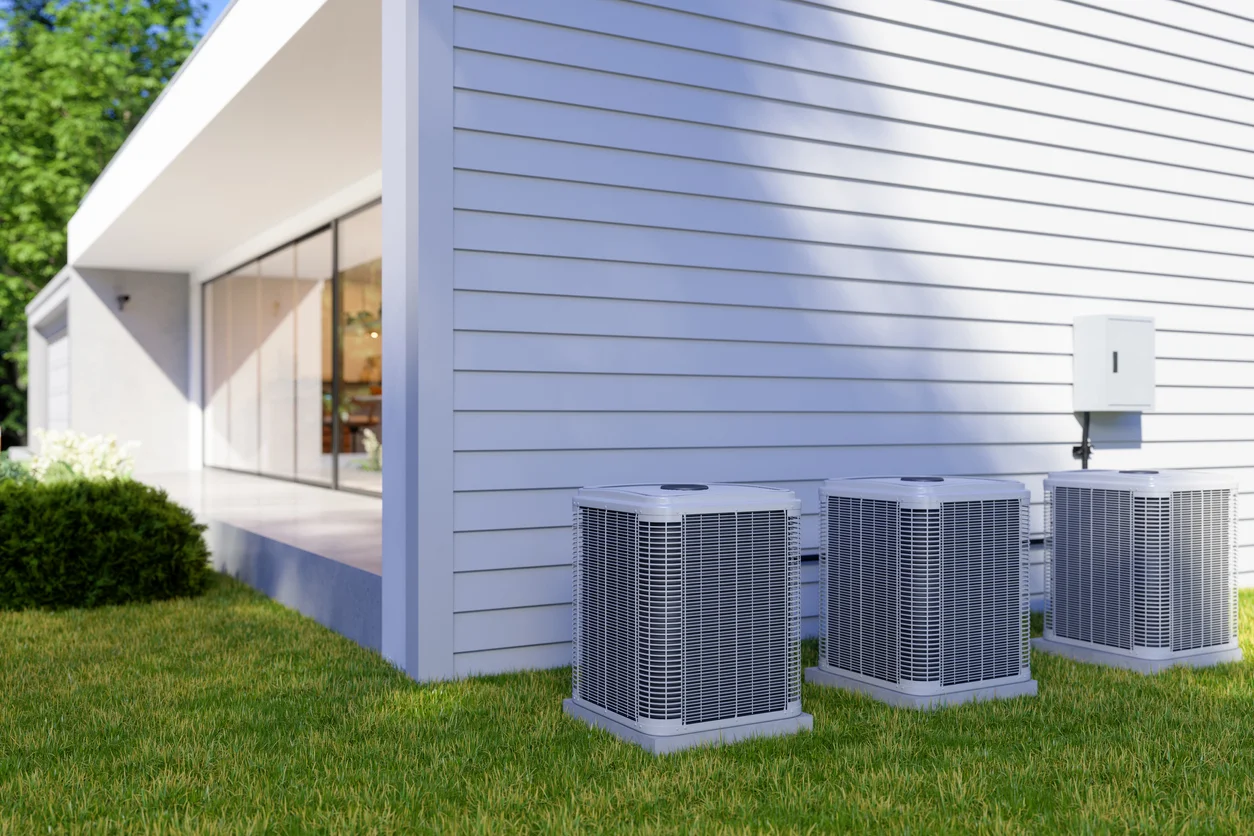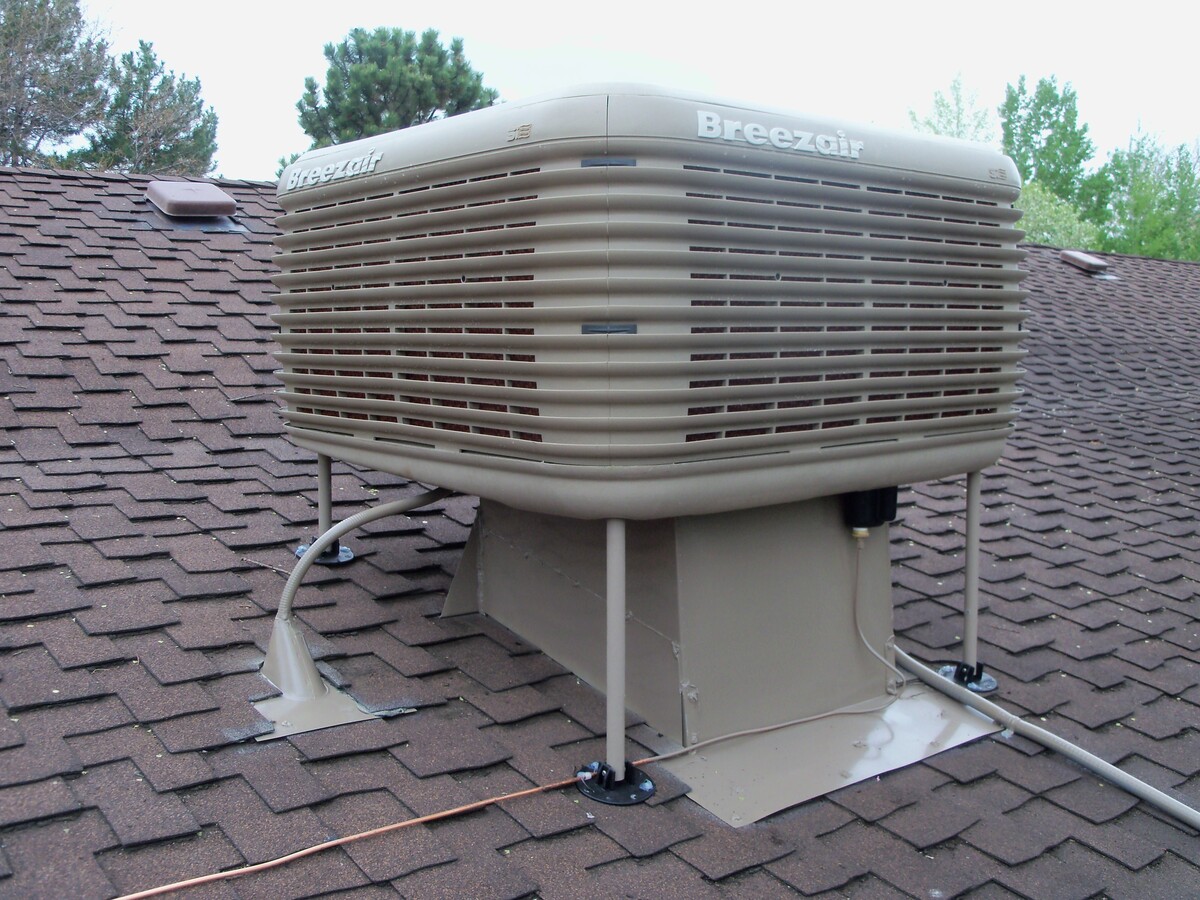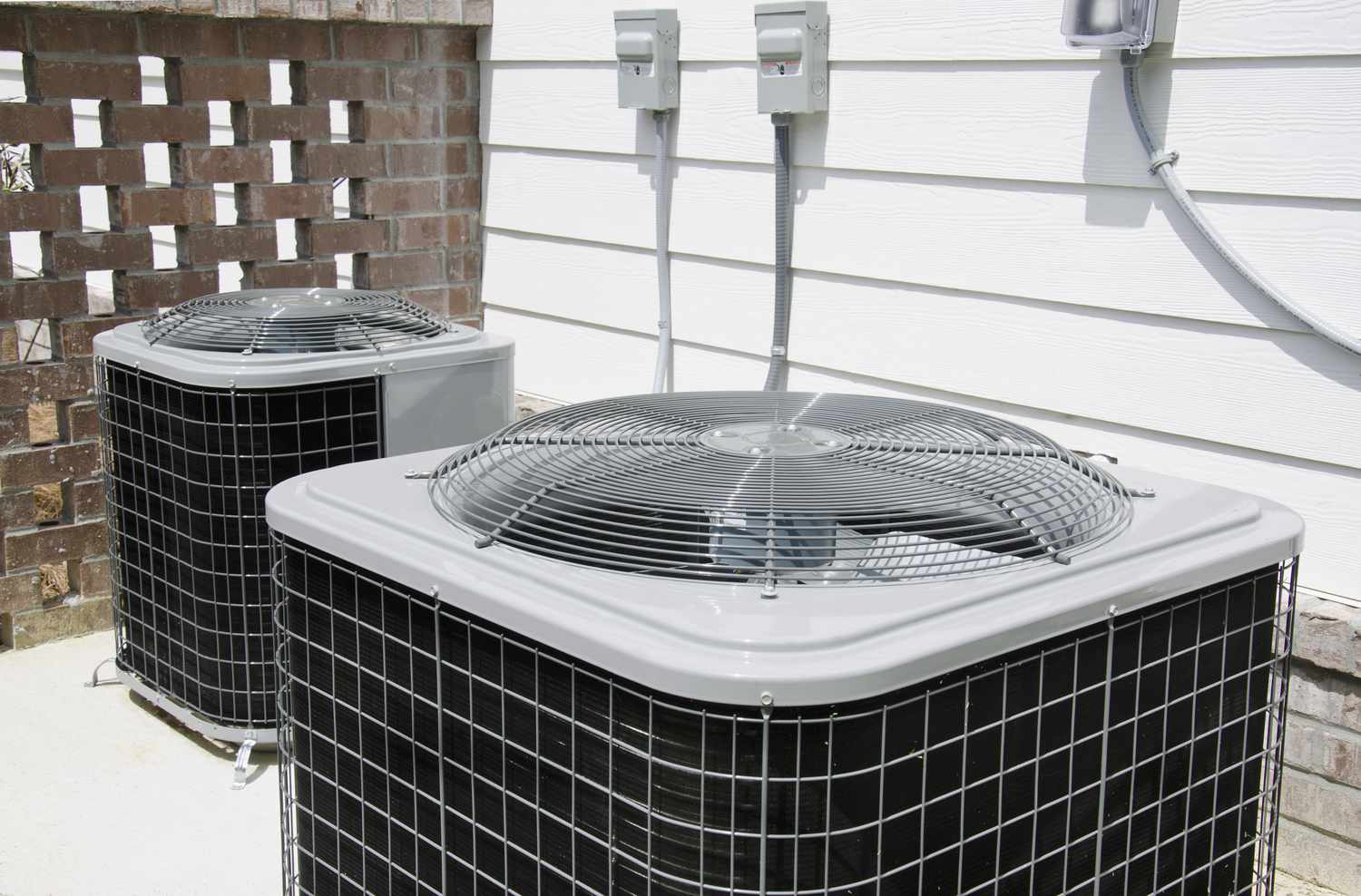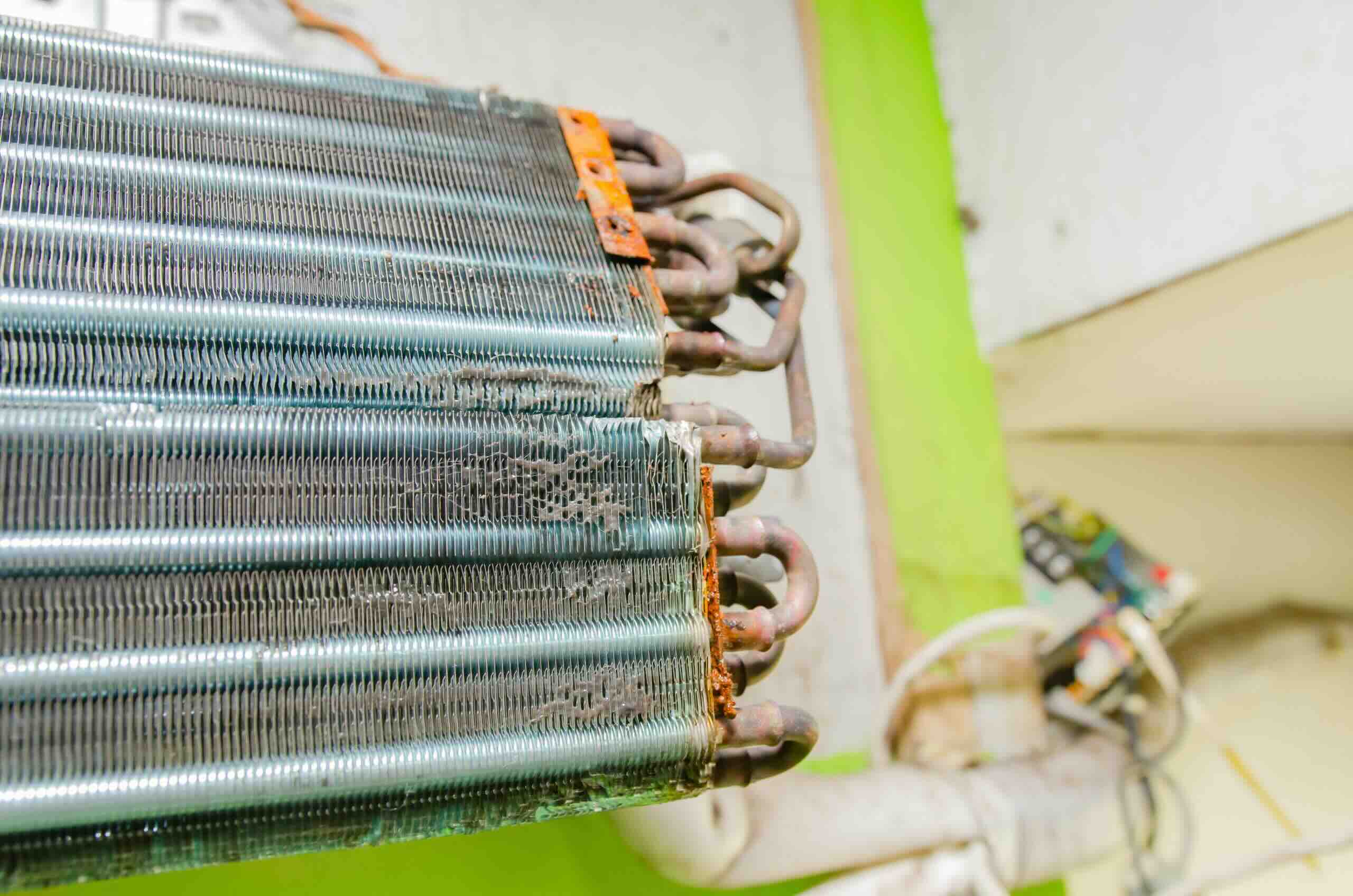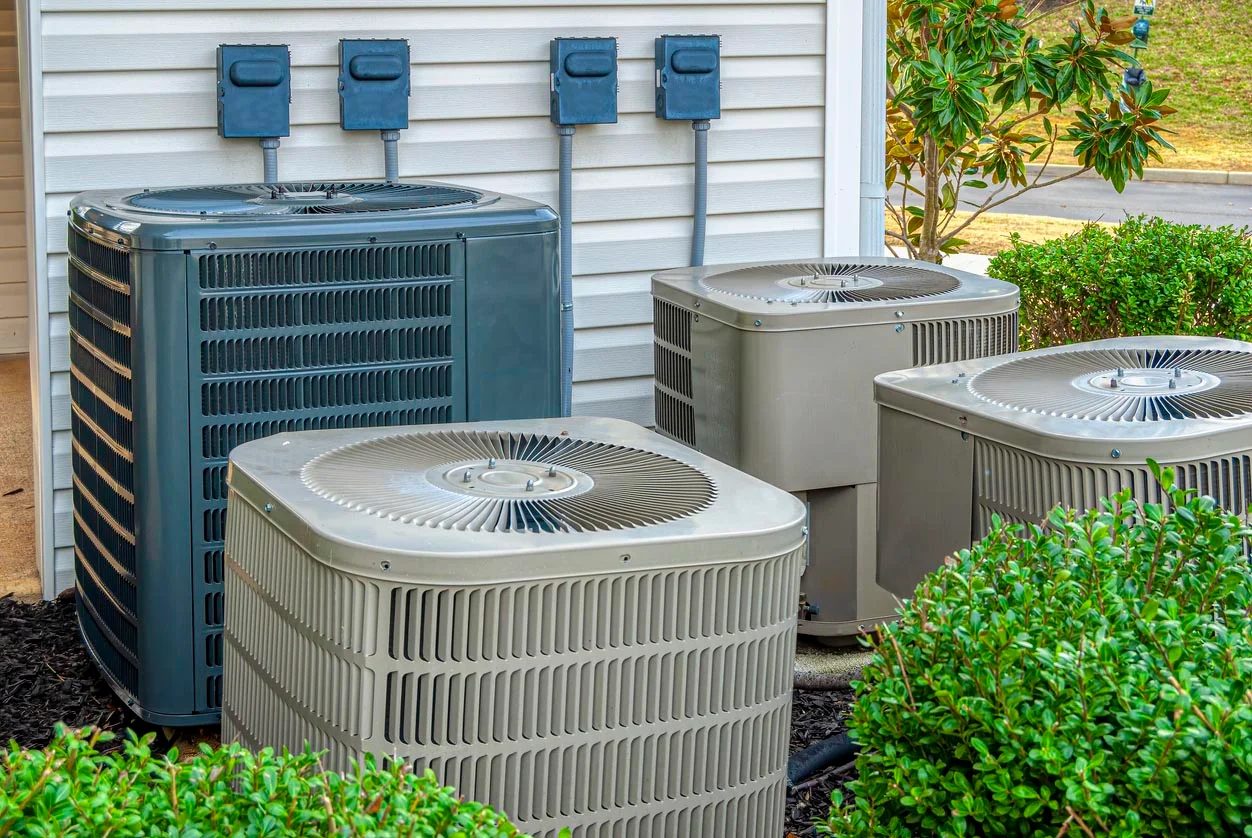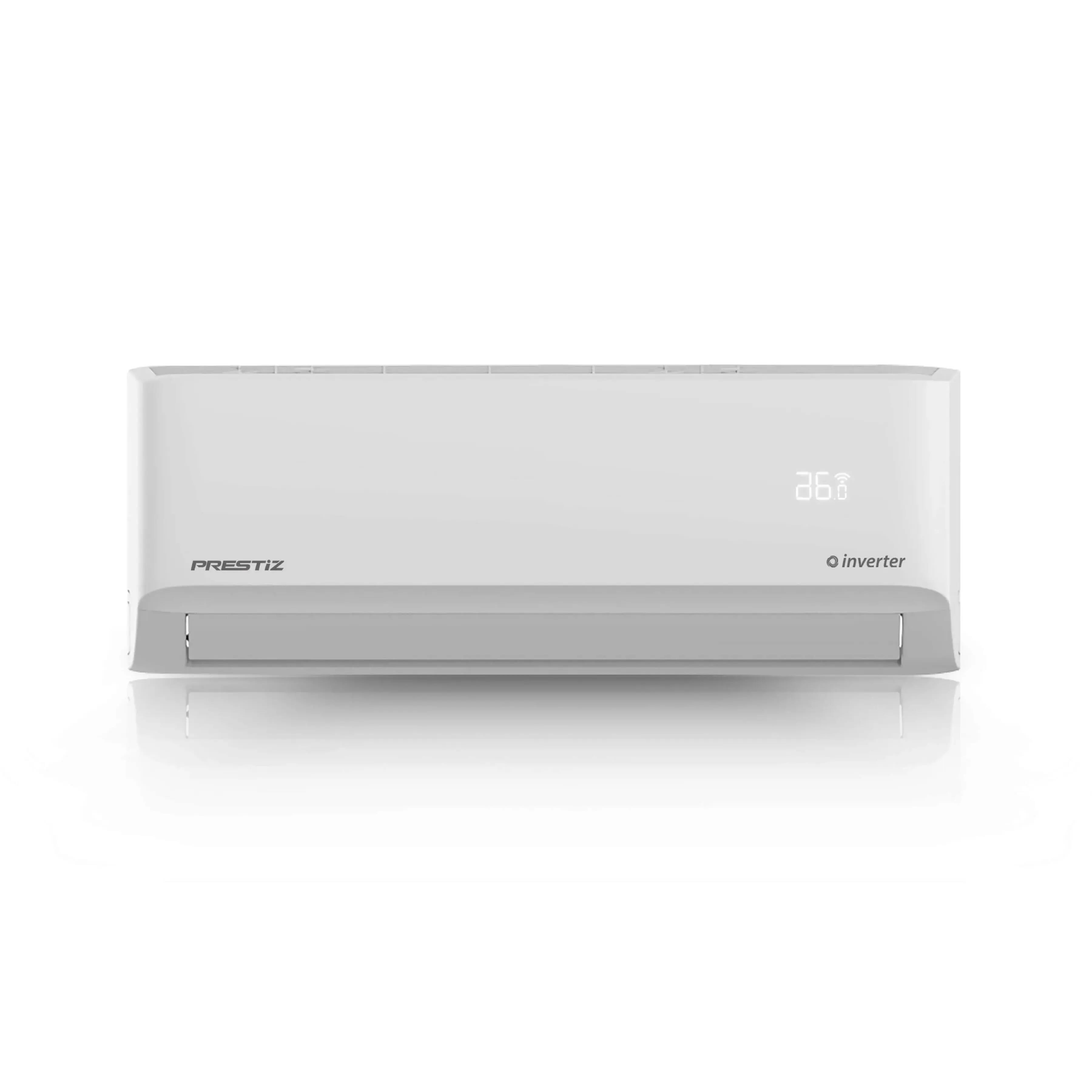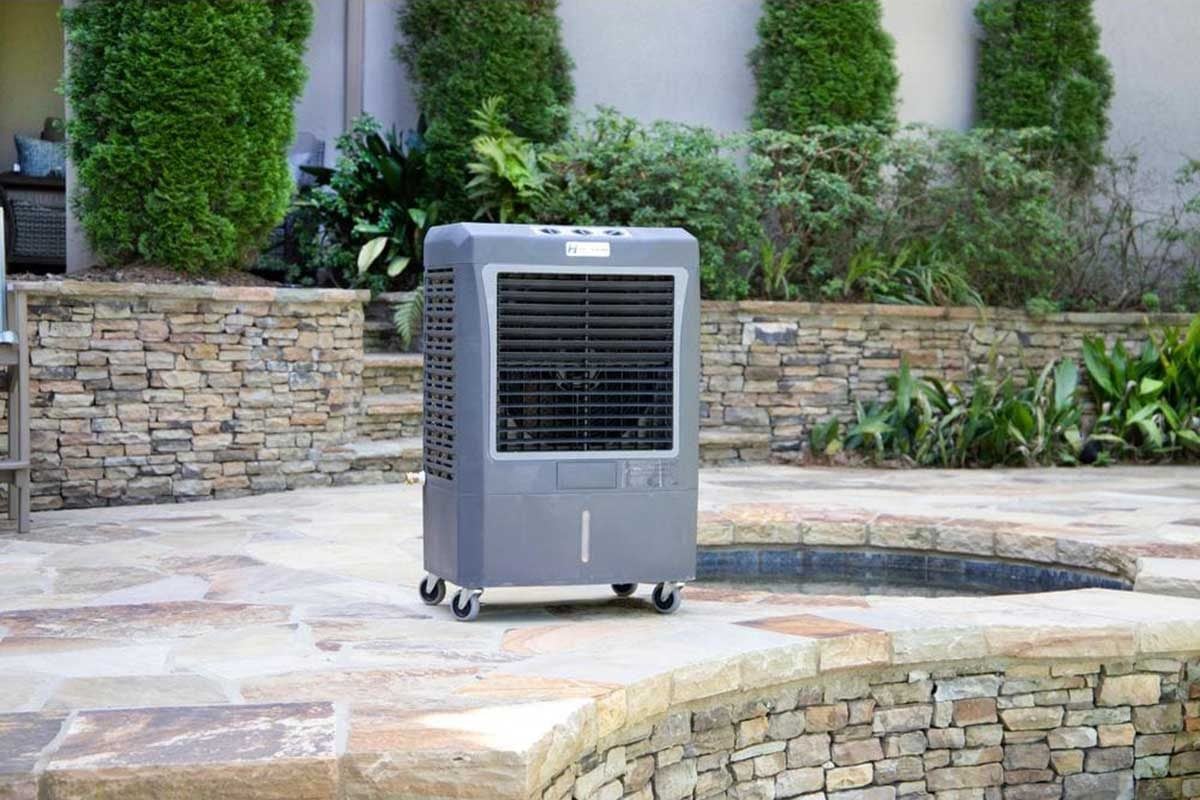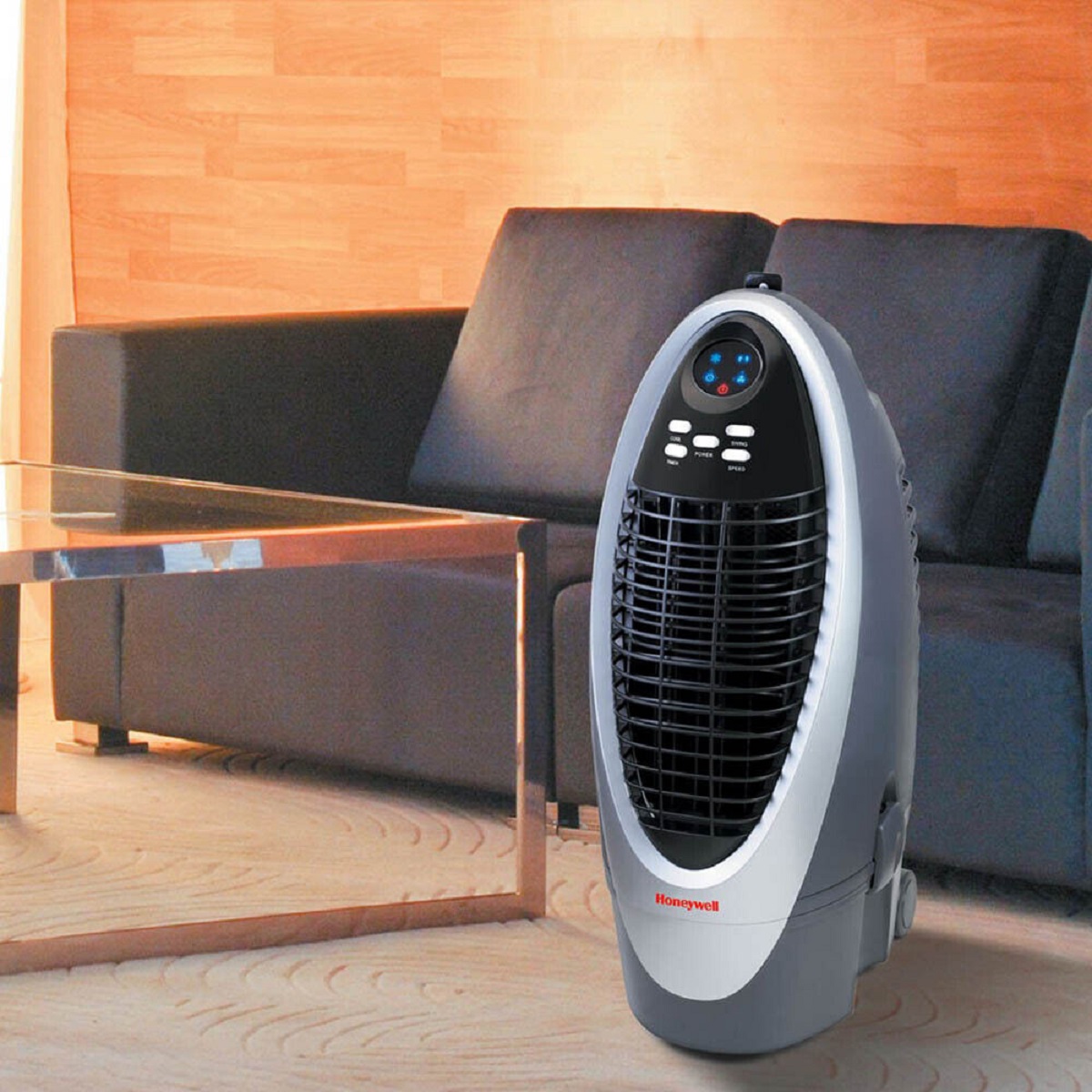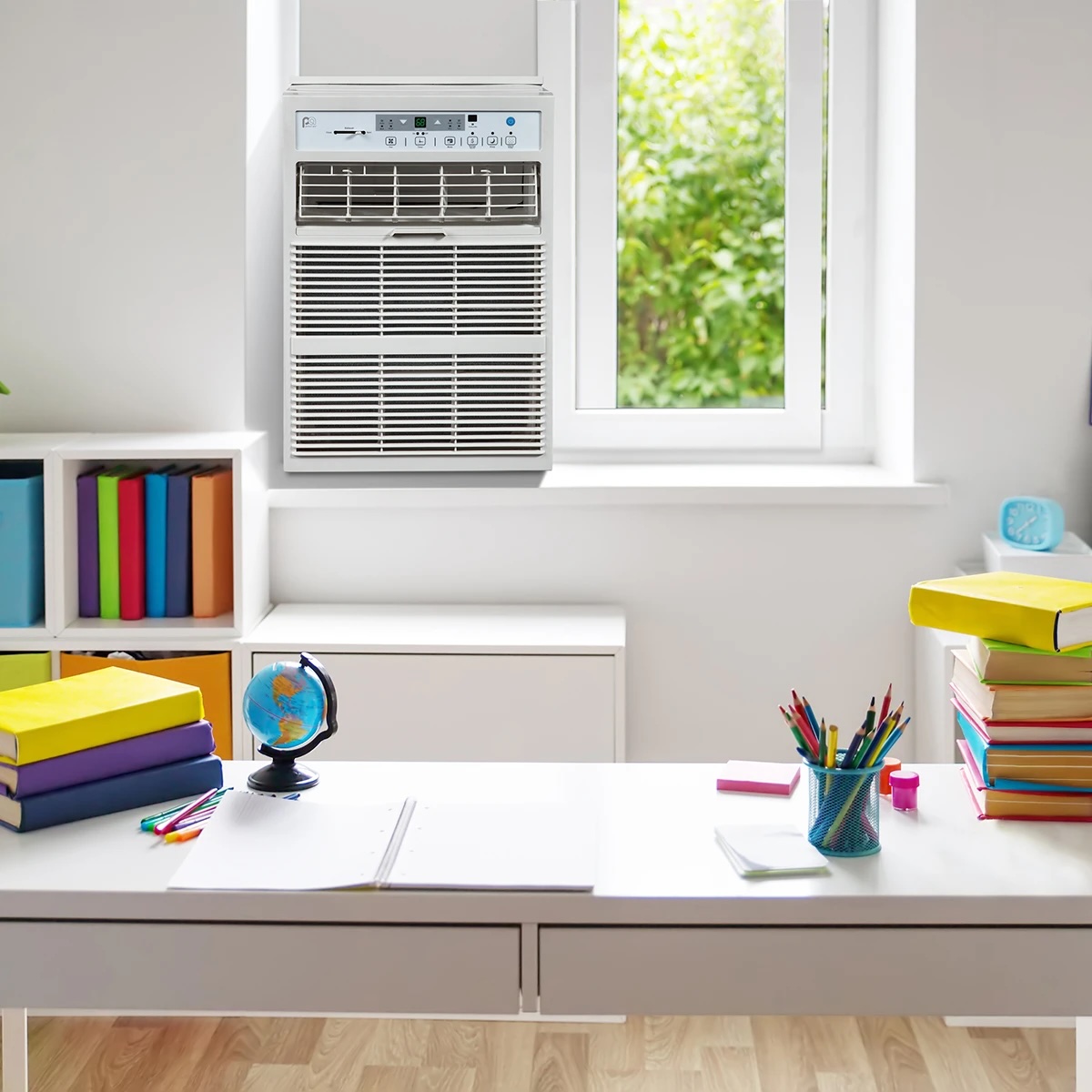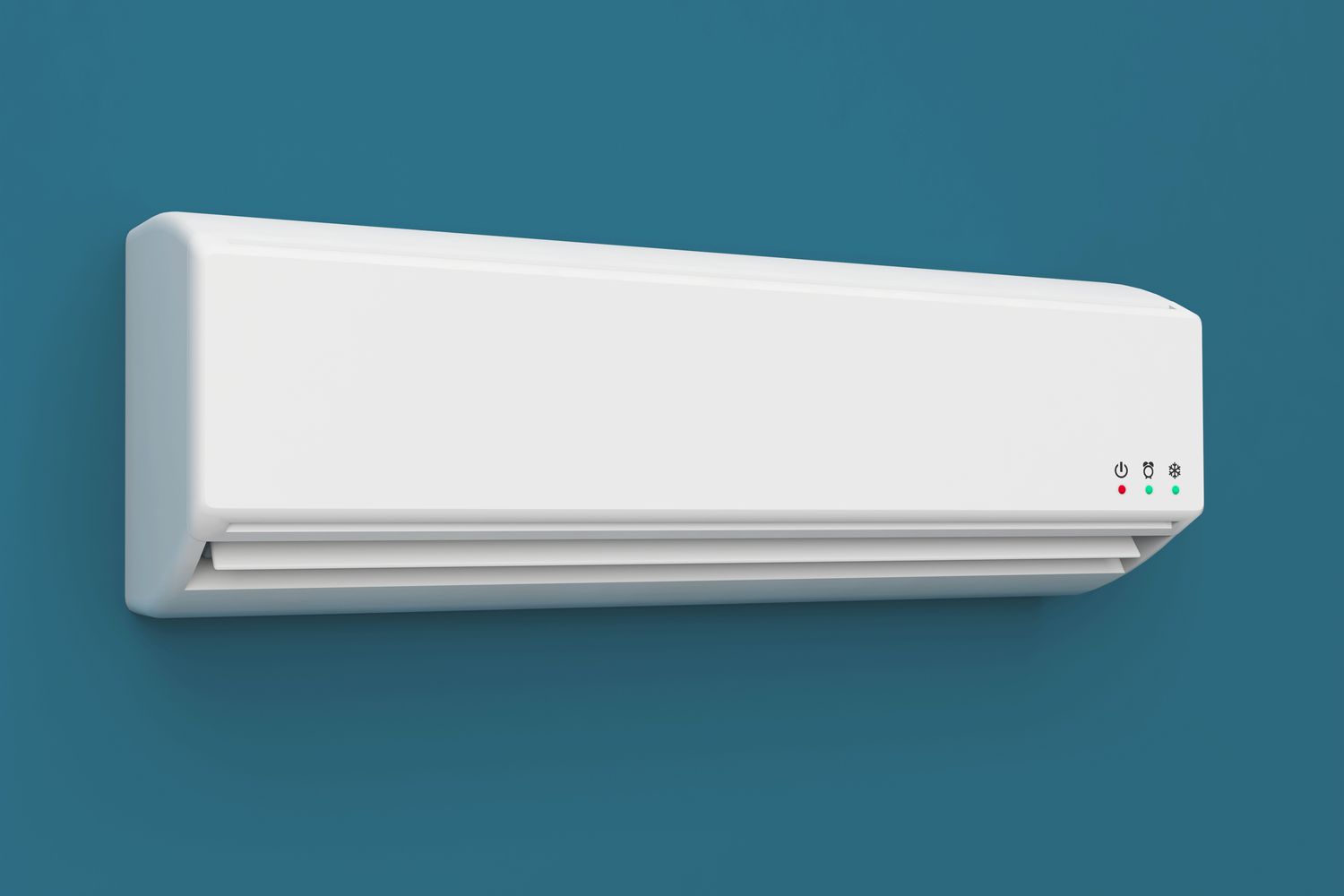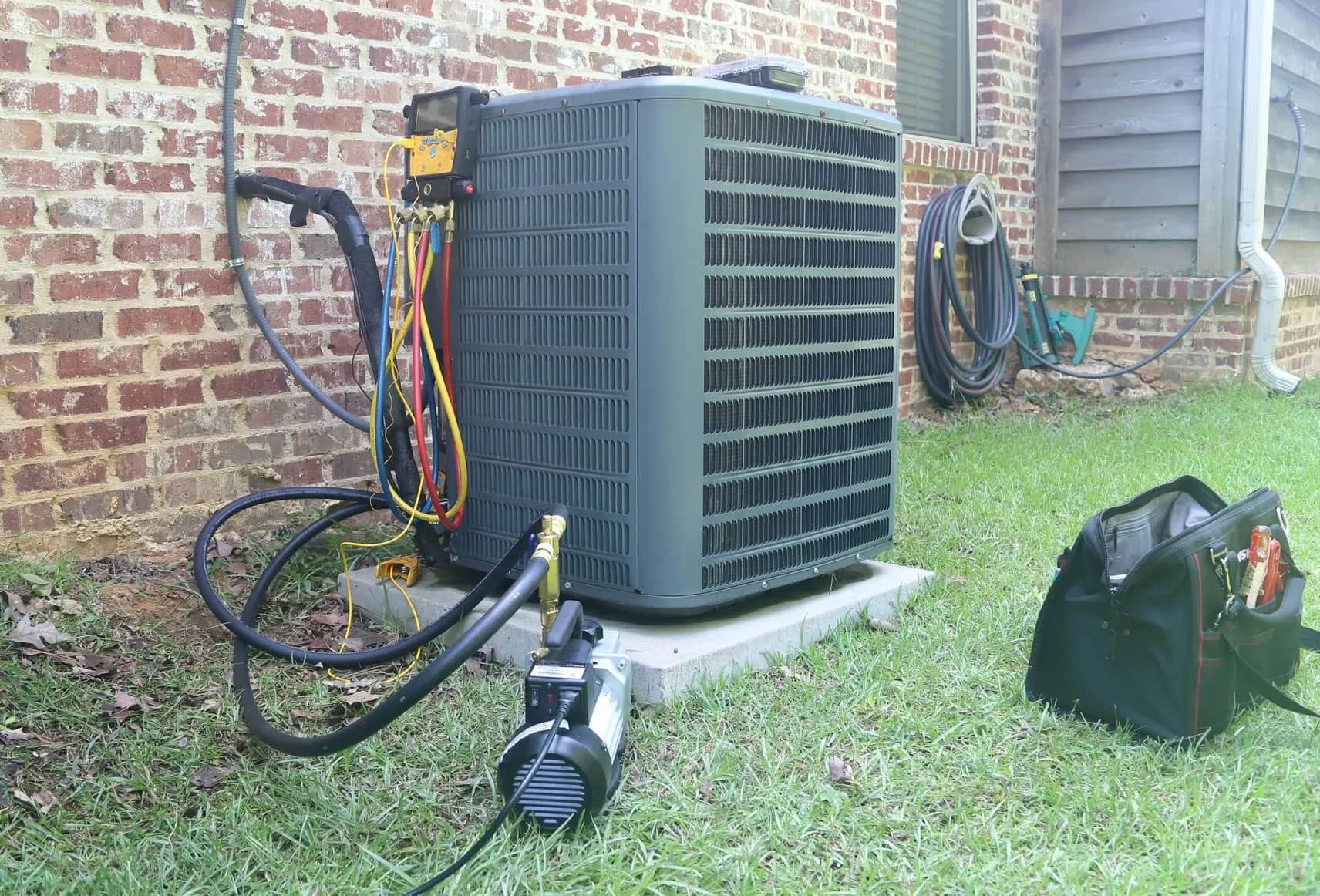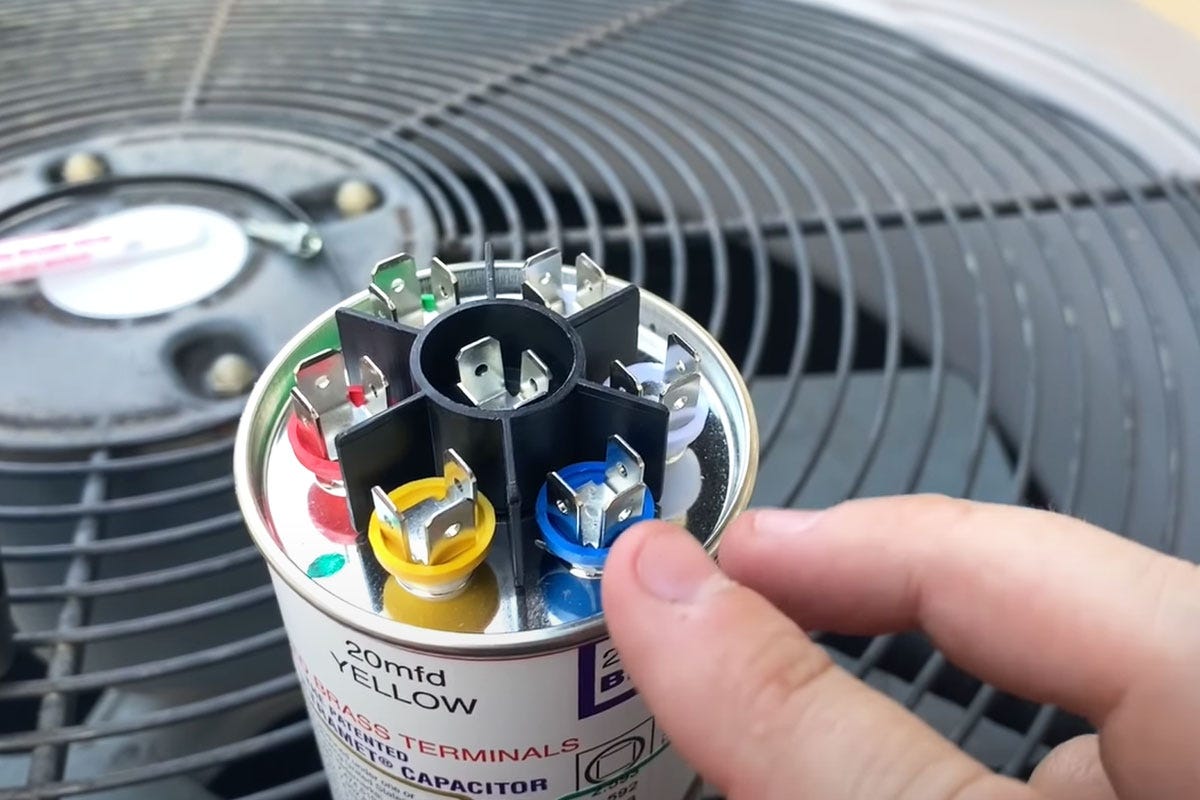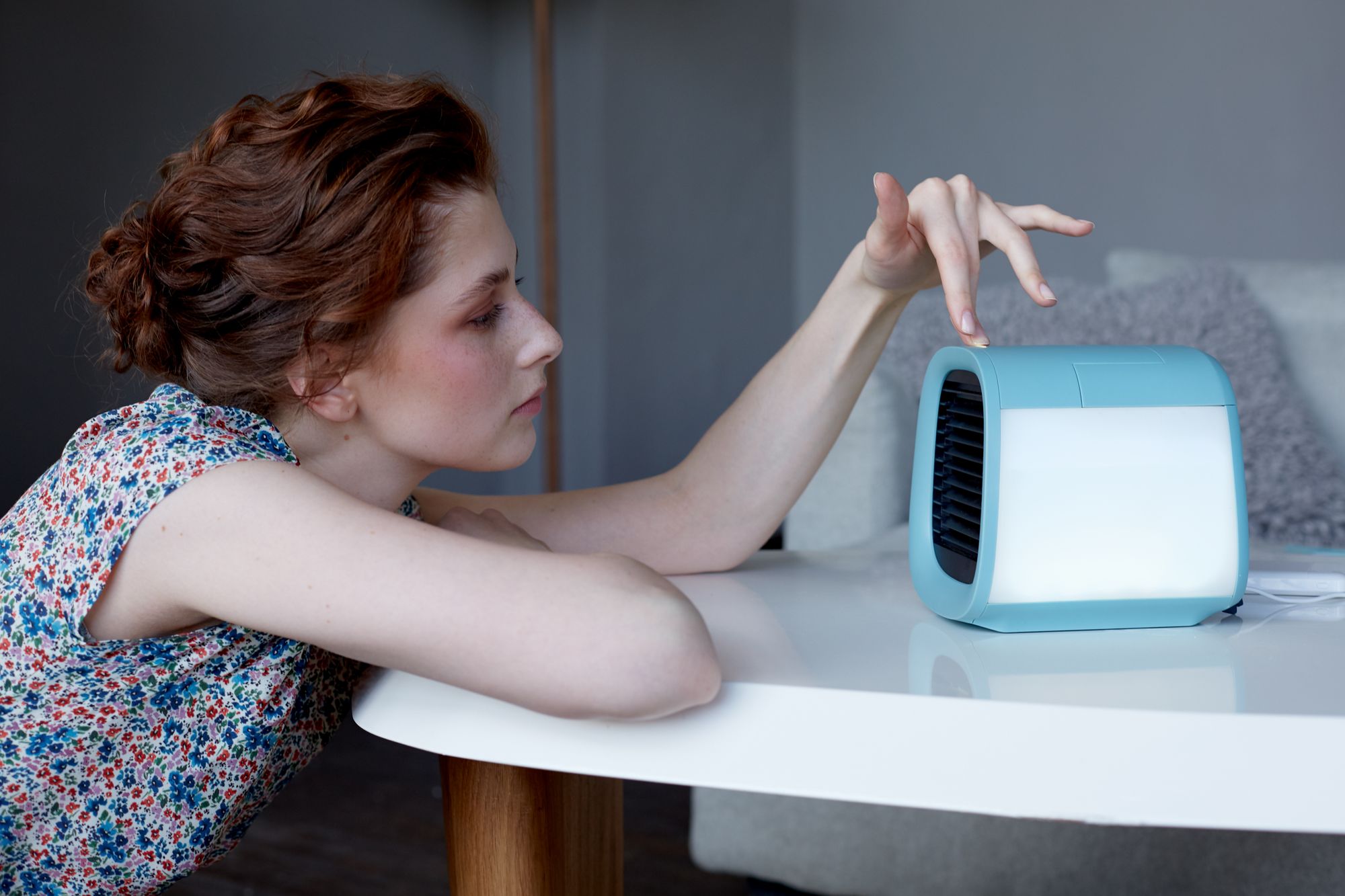Home>Home Maintenance>What Is An Evaporative Air Conditioner
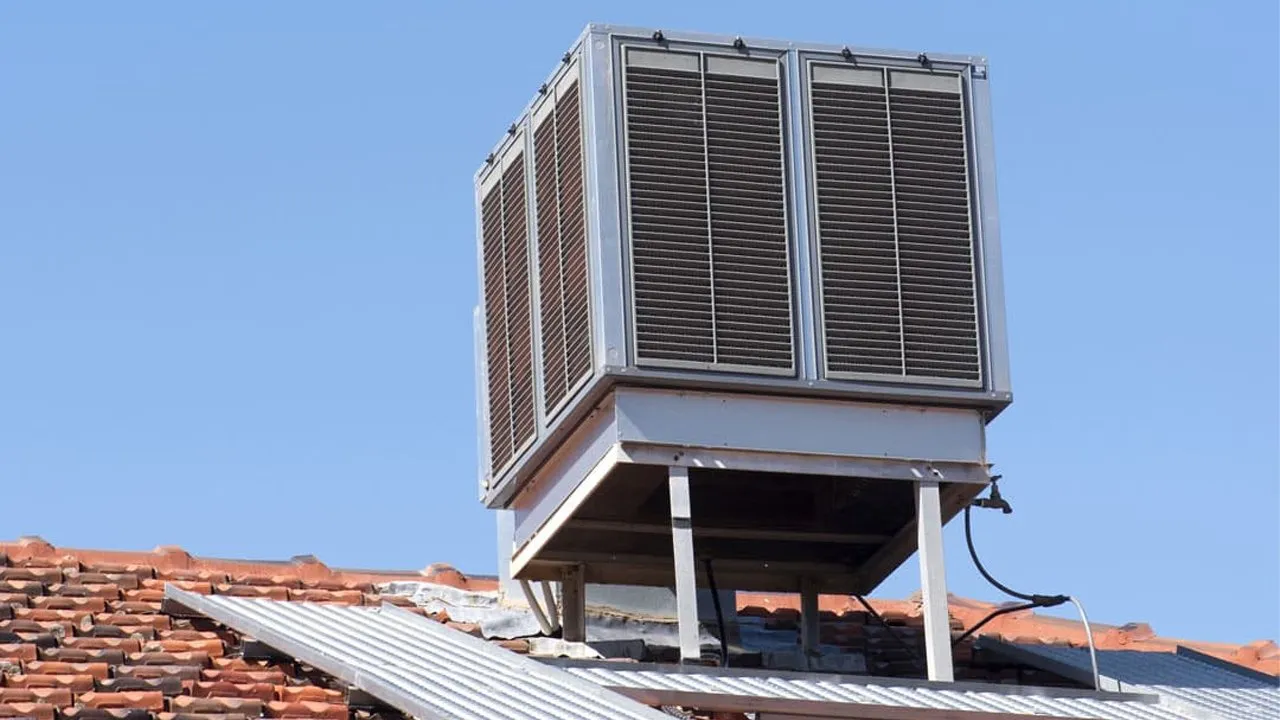

Home Maintenance
What Is An Evaporative Air Conditioner
Modified: March 7, 2024
Learn about the benefits of using an evaporative air conditioner for your home. Discover how this cost-effective and energy-efficient cooling system can enhance your home maintenance.
(Many of the links in this article redirect to a specific reviewed product. Your purchase of these products through affiliate links helps to generate commission for Storables.com, at no extra cost. Learn more)
Introduction
Welcome to the world of evaporative air conditioners! If you’re looking for an efficient and environmentally friendly way to cool your home, then you’re in the right place. In this article, we’ll explore the ins and outs of evaporative air conditioners, also known as swamp coolers, to help you better understand how they work and whether they’re the right choice for your home.
Evaporative air conditioners use the natural process of evaporation to cool the air in your living space. Unlike traditional air conditioners that rely on refrigerants and compressors, evaporative cooling systems use water and a fan to lower the temperature. This makes them a more sustainable option, both in terms of energy consumption and environmental impact.
One of the key components of an evaporative air conditioner is the evaporative pad or cooling media. This pad is typically made of a cellulose material that acts as a sponge, absorbing water from a reservoir. As hot air is pulled through the pad by a fan, the water evaporates, cooling the air in the process.
Evaporative air conditioners are particularly effective in dry climates with low humidity levels. The evaporation process adds moisture to the air, which can be beneficial in arid regions. Unlike traditional air conditioners that tend to dry out the air, evaporative coolers provide a naturally humid environment, which can be a relief for those suffering from allergies or dry skin.
Before diving into the details of evaporative air conditioners, it’s important to note that they are not suitable for all environments. High humidity areas, such as coastal regions, may not benefit as much from evaporative cooling, as the air is already saturated with moisture. Therefore, it’s essential to consider your climate and specific needs before making a decision.
In the following sections, we’ll delve deeper into how evaporative air conditioners work, their advantages and disadvantages, important factors to consider before purchasing one, as well as installation and maintenance tips. We’ll also highlight some popular brands in the market to help you make an informed choice. So, let’s get started!
Key Takeaways:
- Evaporative air conditioners use water and a fan to cool your home, making them energy-efficient and eco-friendly, but they work best in dry climates with low humidity levels.
- When choosing an evaporative air conditioner, consider factors like climate, space size, installation type, water supply, noise level, and budget to ensure the right fit for your home. Regular maintenance is essential for optimal performance.
Read more: What Is An Evaporative Air Cooler
How Evaporative Air Conditioners Work
Evaporative air conditioners work on a simple yet effective principle: evaporation. The core concept behind these cooling systems is to harness the cooling power of water evaporation to lower the temperature of the air in your home.
The central component of an evaporative air conditioner is the cooling pad or media. This pad is typically made of a cellulose material that is designed to hold water. Water is supplied to the pad through a tank or reservoir, often using a small water pump.
When the evaporative air conditioner is turned on, a fan pulls warm air from the environment and pushes it through the wet cooling pad. As the air passes through the pad, the water molecules on its surface evaporate into the air, extracting heat and causing the air temperature to drop.
The cooled air is then circulated back into your living space, creating a refreshing and comfortable environment. Any excess moisture that is not evaporated is released through an exhaust vent or window, ensuring that your indoor humidity levels remain balanced.
It’s important to note that evaporative air conditioners require a steady supply of fresh air to operate efficiently. To achieve this, they are typically designed with open windows or vents that allow fresh air to enter the space. This continuous circulation of fresh air helps maintain a healthy indoor environment.
Another factor that influences the cooling efficiency of evaporative air conditioners is the humidity level. These systems work best in dry climates with low humidity levels. In a dry environment, the air has more capacity to absorb moisture, enhancing the cooling effect of evaporation. However, in areas with high humidity, the air is already saturated with moisture, limiting the evaporative cooling potential.
Evaporative air conditioners also offer the added benefit of providing natural ventilation. By continuously introducing fresh air into your home, they can help reduce the buildup of indoor pollutants and improve air quality. This can be particularly beneficial for individuals with respiratory conditions or allergies.
Overall, evaporative air conditioners provide a cost-effective and energy-efficient cooling solution that is well-suited for specific climates and conditions. Their reliance on the evaporation process makes them a sustainable alternative to traditional air conditioning systems.
Advantages of Evaporative Air Conditioners
Evaporative air conditioners offer several advantages over traditional air conditioning systems. Let’s dive into some of the key benefits that make these cooling units a popular choice for many homeowners:
- Energy Efficiency: Evaporative air conditioners are known for their energy efficiency. Compared to traditional air conditioners that require a significant amount of electricity to operate, evaporative coolers use much less power. The primary source of energy consumption for these systems is the fan and the water pump, which are generally more energy-efficient than compressors.
- Cost Savings: The energy efficiency of evaporative air conditioners translates into cost savings for homeowners. These units have lower operating costs, resulting in reduced electricity bills. Additionally, the initial cost of purchasing and installing an evaporative cooler tends to be lower than that of a traditional air conditioner.
- Eco-Friendliness: Evaporative air conditioners are environmentally friendly cooling options. They use water as the cooling medium instead of harmful refrigerants and chemicals that contribute to ozone depletion. Evaporative cooling also produces fewer greenhouse gas emissions, making it a more sustainable choice for those conscious of their carbon footprint.
- Natural Humidification: Unlike traditional air conditioners that can dry out the air, evaporative coolers add moisture to the environment. This natural humidification is beneficial for individuals with respiratory issues, as it helps alleviate dryness in the airways and can provide relief for allergy and asthma symptoms.
- Fresh Air Circulation: Evaporative air conditioners work by continuously introducing fresh air from outside into your home. This natural ventilation helps improve indoor air quality by reducing the concentration of indoor pollutants. As a result, you can enjoy cleaner and healthier air within your living space.
- Simple Operation: Evaporative air conditioners have a straightforward design and operation. They typically consist of a few key components, including a water pump, a cooling pad, and a fan. With minimal moving parts and no complex refrigeration systems, maintenance and repairs are generally easier and less expensive.
It’s important to note that the advantages of evaporative air conditioners are most pronounced in specific climates and conditions. These units perform best in dry regions with low humidity levels, where the air has a higher capacity to absorb moisture and facilitate efficient evaporation. In humid climates, the cooling effect might be less effective, and the increased humidity levels may not be ideal.
Now that we’ve explored the advantages of evaporative air conditioners, let’s take a look at some of the potential disadvantages associated with these cooling systems.
Disadvantages of Evaporative Air Conditioners
While evaporative air conditioners offer many benefits, it’s important to consider their potential disadvantages as well. Understanding these limitations will help you make an informed decision about whether this cooling system is the right choice for your home. Let’s explore some of the common drawbacks associated with evaporative coolers:
- Dependent on Climate: Evaporative air conditioners are highly dependent on the climate in which they operate. These cooling units are most effective in dry climates with low humidity levels. In areas with high humidity, the already saturated air limits the evaporation process and reduces the cooling efficiency of the system.
- Water Consumption: Since evaporative air conditioners rely on water to cool the air, they require a continuous supply of water to operate effectively. This means that you’ll need to keep an eye on the water levels in the unit’s reservoir and ensure regular refills. In areas with water scarcity, this can be a significant consideration.
- Maintenance: Evaporative coolers require regular maintenance to ensure optimal performance. The cooling pads or media need to be cleaned or replaced periodically to prevent the accumulation of mineral deposits and debris. Additionally, the water reservoir and supply lines should be checked and cleaned to avoid bacterial growth.
- Windows or Vents: Evaporative air conditioners require open windows or vents to allow the entry of fresh air into the space. While this promotes natural ventilation, it may not be suitable for everyone. If security or noise concerns arise due to open windows, the use of evaporative coolers may be limited.
- Seasonal Limitations: Evaporative air conditioners are most effective during hot and dry seasons. In cooler or rainy weather, their cooling efficiency may be reduced. This can result in a decrease in comfort levels or the need for alternative cooling methods, such as fans or air conditioners.
- Space Considerations: Evaporative coolers require adequate space for installation. Whether it’s a rooftop unit or a portable unit, you’ll need to ensure you have enough space available. Additionally, the installation process may require modifications to your home’s existing ventilation system.
While these disadvantages should be taken into account, they should not overshadow the benefits of evaporative air conditioners. It’s important to evaluate these drawbacks in the context of your specific needs, climate, and lifestyle before making a decision.
Now that we’ve discussed the advantages and disadvantages of evaporative air conditioners, let’s move on to the factors you should consider when choosing one for your home.
Factors to Consider Before Choosing an Evaporative Air Conditioner
Before investing in an evaporative air conditioner, there are several important factors to consider. Evaluating these factors will ensure that you select a cooling system that is a perfect fit for your home and climate. Let’s take a look at the key considerations:
- Climate: The climate in your location is a critical factor when choosing an evaporative air conditioner. These units work best in dry climates with low humidity. If you live in a region with high humidity or frequent rainfall, the cooling efficiency may be compromised, and alternative cooling options might be more suitable.
- Size of the Space: Consider the size of the area you want to cool. Evaporative air conditioners are available in different sizes and capacities to accommodate various room sizes. Ensure that the unit you choose is powerful enough to effectively cool your space.
- Installation Type: There are different installation options for evaporative air conditioners. Roof-mounted units are a popular choice for whole-house cooling. These units are connected to ductwork and provide even cooling throughout the home. Portable or window-mounted units are more suitable for smaller spaces or for those who desire flexibility in moving their cooling unit.
- Water Source: Consider the availability and quality of water in your area. Evaporative coolers require a steady supply of water to operate effectively. Ensure that you have an accessible source of water and that the quality meets the manufacturer’s recommendations.
- Noise Level: Evaluate the noise level of the evaporative air conditioner. Some units can produce significant noise, particularly the ones with powerful fans. Consider whether noise will be a concern for you and choose a unit with a noise level that is acceptable for your comfort.
- Energy Efficiency: Look for energy-efficient models that will help you save on electricity costs. Check the energy ratings of different units and opt for those with higher energy efficiency ratings. These units may cost more upfront but can provide long-term savings over their lifespan.
- Budget: Consider your budget when selecting an evaporative air conditioner. Determine how much you are willing to invest in the unit, taking into account the initial purchase price, installation costs, and potential ongoing maintenance expenses.
Taking the time to assess these factors will help you narrow down your options and choose an evaporative air conditioner that best fits your needs. It’s also beneficial to consult with an HVAC professional who can provide expert advice based on the specifics of your home and climate.
Now that you have a better understanding of what to consider, let’s move on to discussing the installation and maintenance of evaporative air conditioners.
An evaporative air conditioner, also known as a swamp cooler, uses the natural process of evaporation to cool the air. It works best in hot, dry climates and is more energy efficient than traditional air conditioners.
Read more: How Evaporative Air Cooler Works
Installation and Maintenance of Evaporative Air Conditioners
Proper installation and regular maintenance are essential for ensuring the optimal performance and longevity of your evaporative air conditioner. Let’s delve into the key aspects of installation and maintenance:
Installation:
When it comes to installing an evaporative air conditioner, it’s recommended to seek professional assistance, especially for roof-mounted units. HVAC technicians have the expertise and knowledge to ensure a proper installation that adheres to local building codes and safety standards. However, if you’re opting for a portable or window-mounted unit, installation can usually be done by following the manufacturer’s instructions.
During installation, consider the following:
- Positioning: Place the evaporative cooler in a location that allows for efficient airflow and easy access for maintenance. For roof-mounted units, ensure the unit is securely fastened and properly aligned with the ductwork. Portable units should have adequate space around them for unobstructed air circulation.
- Ventilation: Ensure that the unit is properly connected to the ventilation system, whether it’s ductwork for whole-house cooling or an exhaust hose for portable units. Pay attention to sealing any gaps or leaks to prevent air leakage.
- Water Supply: Connect the unit to a reliable water source, following the manufacturer’s instructions. Ensure that the water supply line is securely connected and free from leaks.
- Electrical Connections: Ensure that the unit is properly connected to the electrical supply. If necessary, consult an electrician to ensure correct wiring and safe electrical connections.
Maintenance:
Regular maintenance is important to keep your evaporative air conditioner operating efficiently and extend its lifespan. Here are some essential maintenance tasks:
- Cleaning: Regularly clean the cooling pads or media to remove mineral deposits, dust, and debris. Follow the manufacturer’s guidelines for cleaning frequency and techniques. It’s typically recommended to clean the pads at the beginning and end of the cooling season, as well as periodically throughout the season.
- Water Management: Check the water level in the reservoir regularly and ensure it is adequately filled. Replace the water as needed to prevent any stagnant water buildup. Additionally, clean the water distribution system and water pump according to the manufacturer’s instructions.
- Filter Maintenance: Some evaporative air conditioners have air filters that need to be cleaned or replaced regularly. Check the filters and clean or replace them as recommended to maintain proper airflow and prevent the buildup of dust and allergens.
- Inspect Fan and Motor: Regularly inspect the fan and motor for any signs of wear, damage, or excessive noise. Lubricate the motor if necessary, following the manufacturer’s recommendations. Address any issues promptly to prevent further damage and ensure optimal performance.
- Seasonal Shutdown: At the end of the cooling season, properly prepare your evaporative air conditioner for winter. Drain the water from the reservoir, clean the unit, and cover it to protect it from the elements. Check the manufacturer’s instructions for specific winterizing procedures.
Following these maintenance practices will help keep your evaporative air conditioner in excellent condition and ensure that it provides efficient and reliable cooling for years to come.
Now that we’ve covered the installation and maintenance of evaporative air conditioners, let’s explore some popular brands in the market.
Popular Brands of Evaporative Air Conditioners
When it comes to choosing an evaporative air conditioner, there are several reputable brands known for their quality and reliability. Let’s take a look at some popular brands in the market:
- Hessaire: Hessaire is a well-known brand that specializes in evaporative coolers. They offer a range of models suitable for various space sizes and installation types. Hessaire evaporative air conditioners are known for their efficient cooling performance and user-friendly features.
- Champion Cooler: Champion Cooler has been manufacturing high-quality evaporative air conditioners for over 70 years. They offer a wide range of models designed for both residential and commercial use. Champion Cooler coolers are known for their durability, energy efficiency, and powerful cooling capabilities.
- Bonaire: Bonaire is a trusted brand that offers innovative and efficient evaporative air conditioners. They are known for their advanced technology, including features like variable speed fans, advanced water management systems, and smartphone integration for remote control.
- MasterCool: MasterCool is a popular brand that specializes in whole-house evaporative cooling systems. They offer powerful units that can provide efficient cooling for larger spaces. MasterCool evaporative air conditioners are known for their durability, energy efficiency, and customizable features.
- Brivis: Brivis is an Australian brand that provides high-quality evaporative coolers. They offer a range of units suitable for residential use. Brivis evaporative air conditioners are known for their reliability, quiet operation, and innovative features such as self-cleaning capabilities.
- DIAL Manufacturing: DIAL Manufacturing is a well-established brand that specializes in evaporative cooler products. They offer a variety of evaporative cooler accessories, including cooling pads, pumps, and replacement parts. DIAL Manufacturing is known for its quality craftsmanship and extensive product range.
It’s important to do further research and read customer reviews before making a final decision. Consider factors such as the specific features you require, your budget, and the availability of service and support in your area.
Now that we’ve discussed popular brands, let’s conclude our exploration of evaporative air conditioners.
Read more: What Is Evaporative Humidifier
Conclusion
Evaporative air conditioners offer a cost-effective, energy-efficient, and environmentally friendly cooling solution for homes in dry climates. By harnessing the power of evaporation, these cooling systems provide efficient cooling while adding moisture to the air, creating a comfortable and healthy indoor environment.
When considering an evaporative air conditioner, it’s crucial to evaluate factors such as your climate, the size of your space, installation type, water supply, noise level, energy efficiency, and budget. Taking these factors into account will help you select the right unit that meets your specific needs.
Proper installation and regular maintenance are key to ensuring optimal performance and prolonging the lifespan of your evaporative air conditioner. Whether you opt for a roof-mounted unit or a portable system, professional installation is recommended. Regular cleaning of the cooling pads, managing the water supply, checking filters and motors, and conducting seasonal shutdown procedures are essential maintenance tasks to keep your unit in top shape.
Several popular brands, such as Hessaire, Champion Cooler, Bonaire, MasterCool, Brivis, and DIAL Manufacturing, offer reliable evaporative air conditioners with various features and capacities to suit different requirements.
Evaporative air conditioners provide a sustainable and economical alternative to traditional air conditioning systems, particularly in dry climates. However, it’s important to consider the limitations of evaporative cooling, such as its dependency on climate and the need for fresh air circulation.
In conclusion, evaporative air conditioners are a viable option for those seeking efficient and eco-friendly cooling solutions. By understanding how these cooling systems work, weighing the benefits and drawbacks, and considering the key factors in installation and maintenance, you can make an informed decision to keep your home cool and comfortable throughout the hot summer months.
Frequently Asked Questions about What Is An Evaporative Air Conditioner
Was this page helpful?
At Storables.com, we guarantee accurate and reliable information. Our content, validated by Expert Board Contributors, is crafted following stringent Editorial Policies. We're committed to providing you with well-researched, expert-backed insights for all your informational needs.
